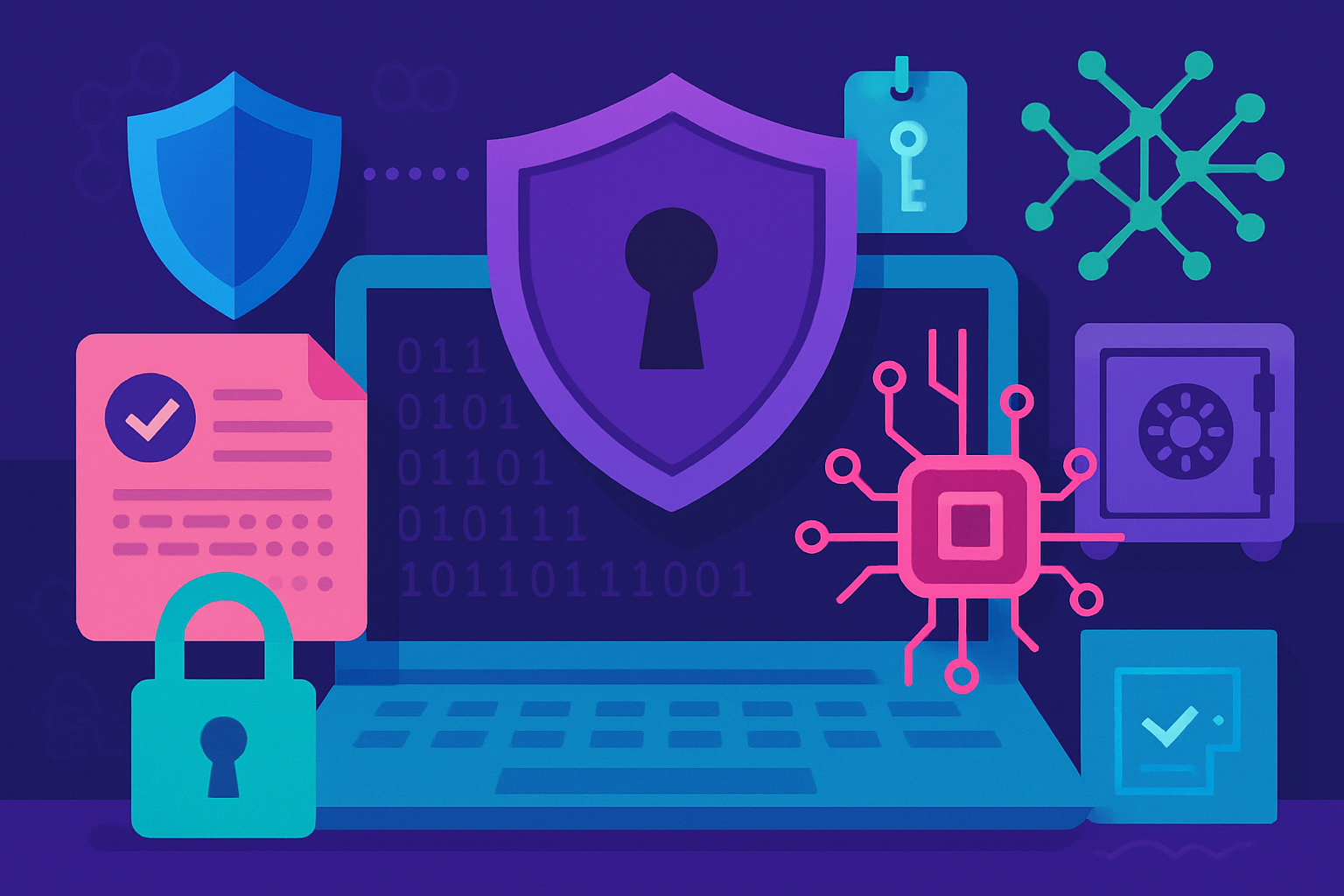
AI agents are rapidly becoming the backbone of decentralized applications, but trust and transparency remain persistent challenges. Traditionally, AI systems have operated as impenetrable black boxes, leaving users and developers with little recourse for verifying how decisions are made or whether outputs have been tampered with. EigenAI, a new framework from EigenLayer, is changing this paradigm by integrating cryptographic proofs and blockchain infrastructure to guarantee verifiable AI agents at scale.
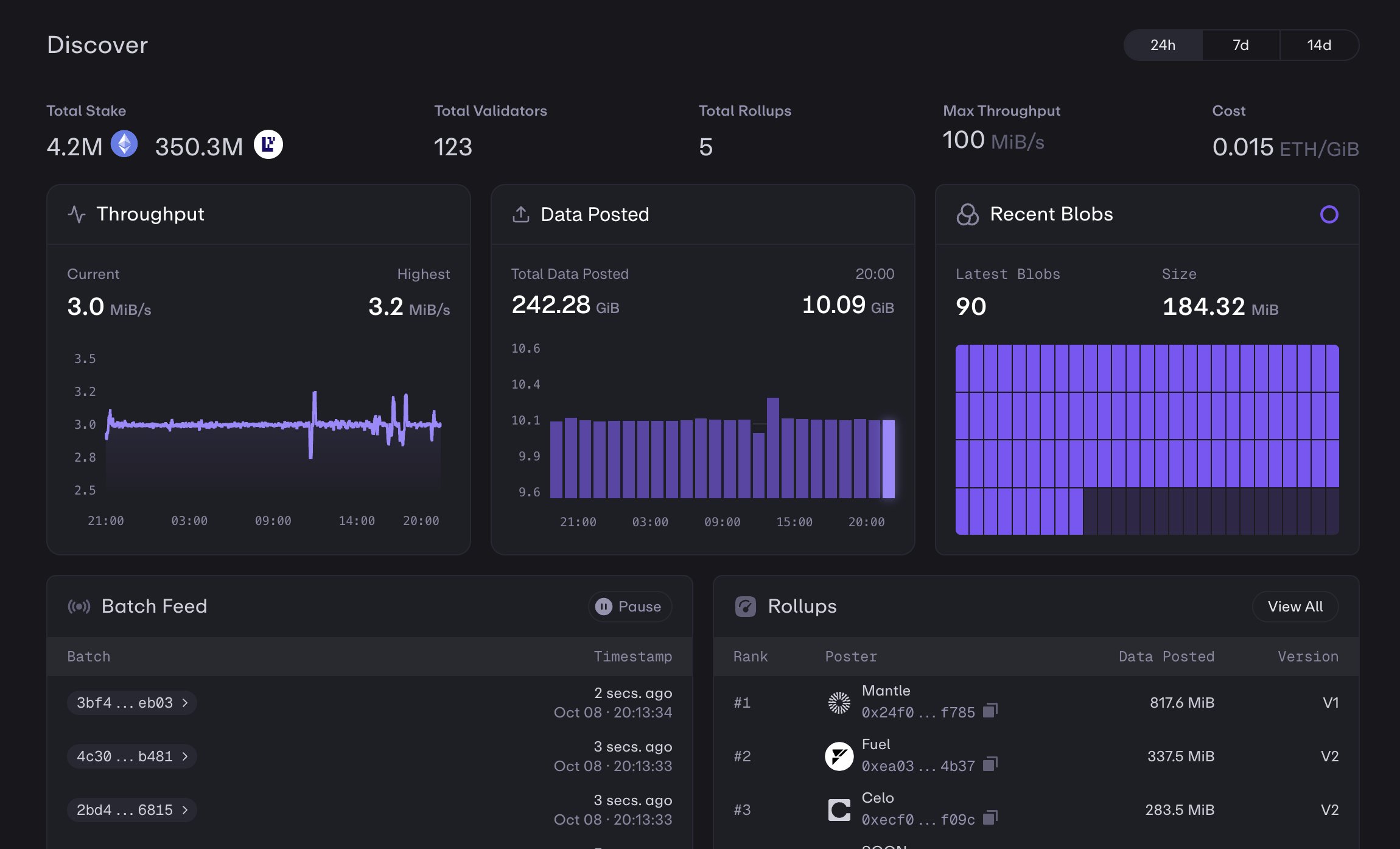
From Black Box to Proof-Driven AI Agents
At its core, EigenAI enables every decision, tool call, and interaction of an AI agent to be accompanied by a cryptographic proof. These proofs are validated on EigenLayer’s decentralized network, ensuring that each step in an agent’s workflow is both transparent and accountable. By leveraging Trusted Execution Environments (TEEs) and Zero-Knowledge Proofs (ZKPs), EigenAI creates a trustless execution environment where neither the developer nor the end user needs to blindly trust any centralized party.
This model is a fundamental shift from the status quo. Instead of relying on opaque APIs or unverifiable LLM outputs, developers can now build AI-powered applications where every inference and execution can be independently verified. As noted by EigenCloud, these verifiable agents are designed to operate at scale without sacrificing speed or user experience (blog.eigencloud.xyz).
The Role of Crypto-Economic Guarantees in Autonomous Apps Trust
Verifiability alone isn’t enough to guarantee trustworthy autonomous applications. Crypto-economic guarantees are a critical piece of the puzzle. With EigenAI and EigenCompute, agents are subject to incentives and penalties enforced via smart contracts. If an agent fails to deliver a verifiable outcome or attempts to manipulate data, economic penalties are automatically triggered. This design aligns agent behavior with user interests, reducing the attack surface for malicious actors.
This approach also enables new forms of deterministic execution, where every step can be replayed and audited on-chain. Developers can now create autonomous agents that manage portfolios, execute trades, or even handle complex DeFi strategies – all with cryptographic assurances that actions were not tampered with (avaprotocol.org). The result is an ecosystem where trust is not assumed but mathematically guaranteed.
Core Features of EigenAI and EigenCompute
-
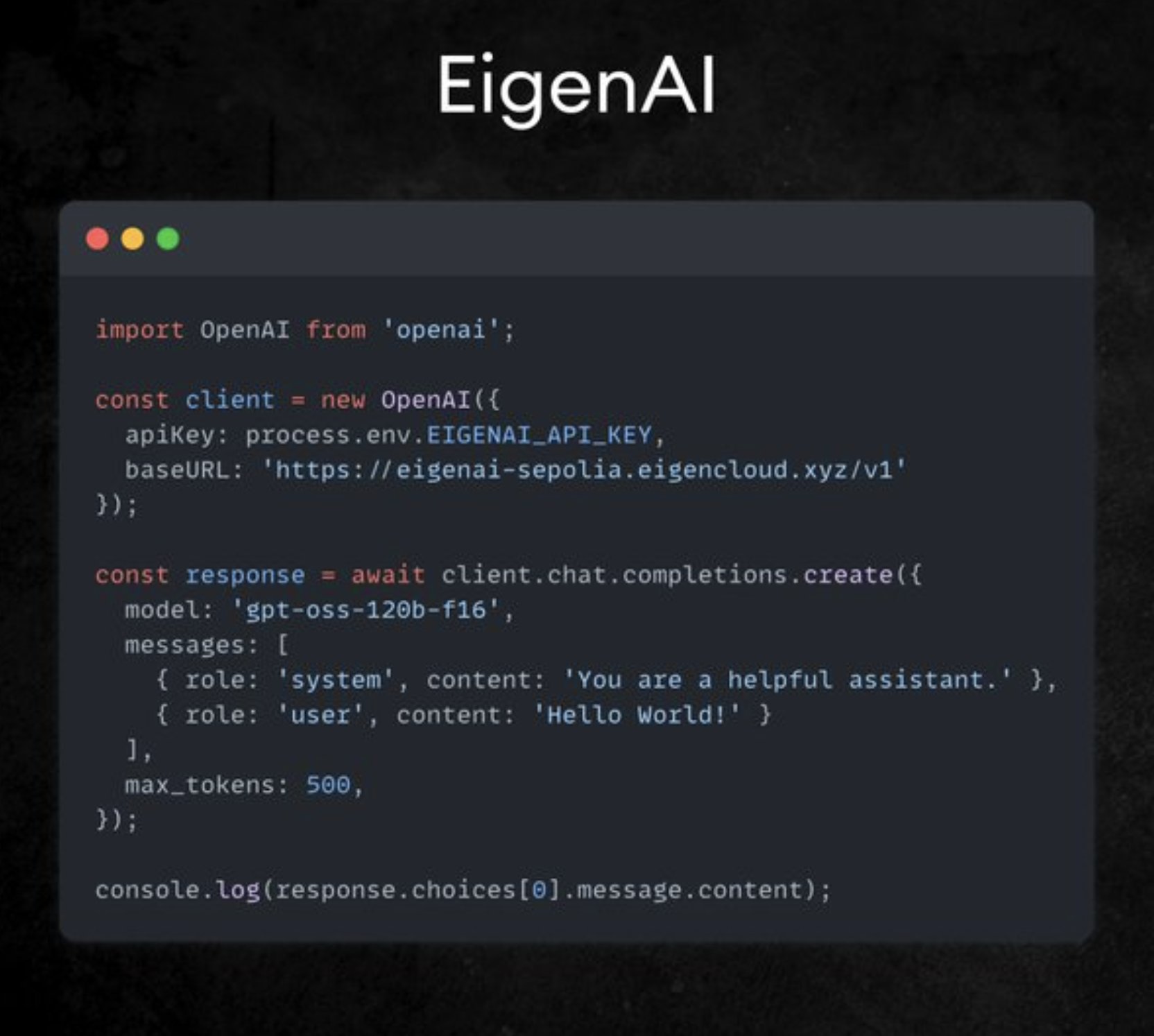
Cryptographic Proofs for Every AI Action: EigenAI generates cryptographic proofs (including Zero-Knowledge Proofs) for each agent decision, tool call, and interaction, ensuring that all outputs are verifiable and tamper-evident.
-

Blockchain-Backed Transparency: All agent actions and decisions are recorded on an immutable blockchain ledger, enabling full traceability, auditability, and compliance verification for autonomous applications.
-
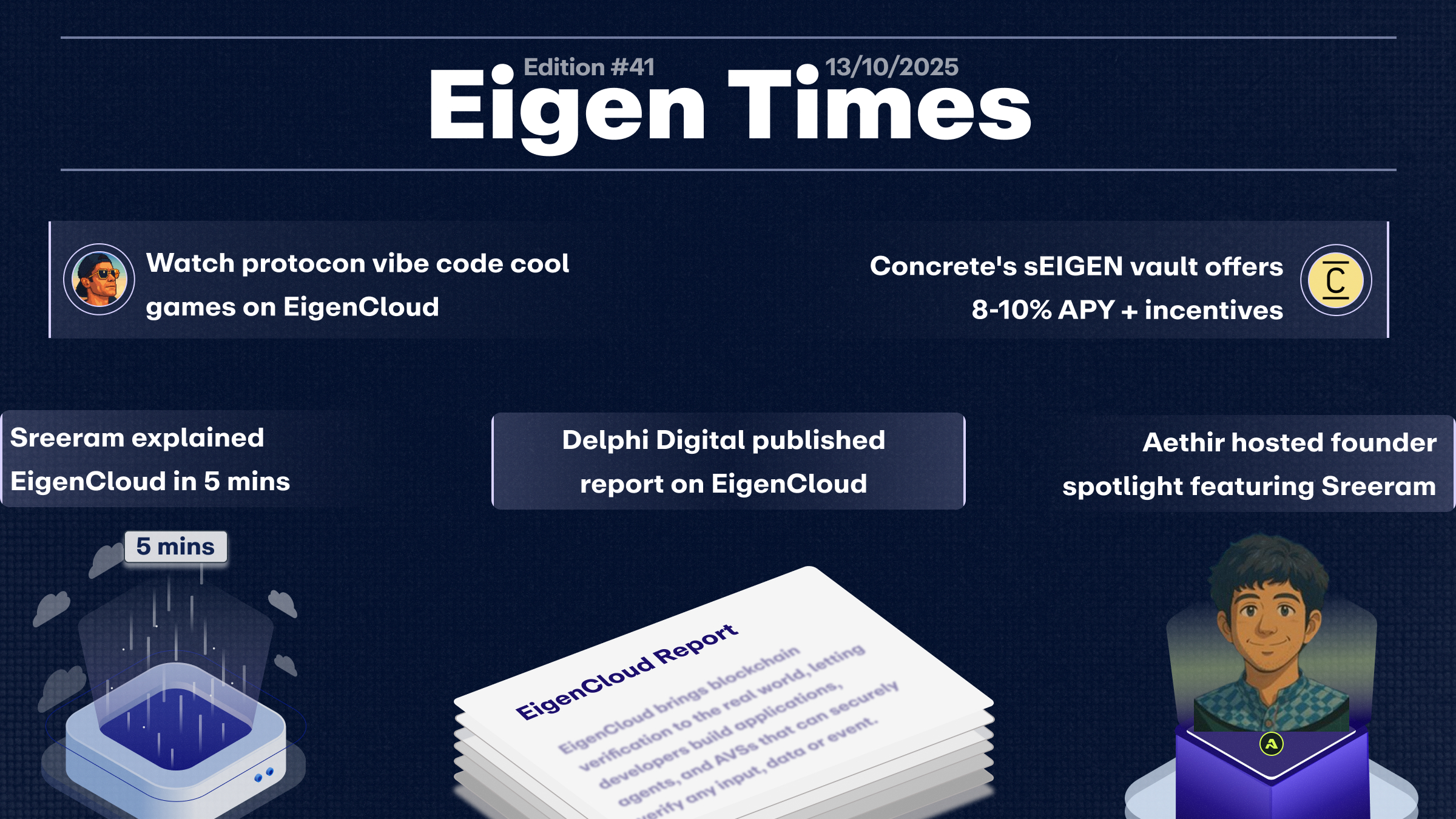
Cryptoeconomic Incentives and Penalties: EigenCompute enforces cryptoeconomic incentives, including penalties for unverified or malicious outputs, motivating agents and operators to consistently deliver trustworthy results.
-

Trusted Execution Environments (TEEs): EigenAI leverages TEEs to provide a secure, trustless execution environment, preventing unauthorized access and manipulation of AI computations.
-
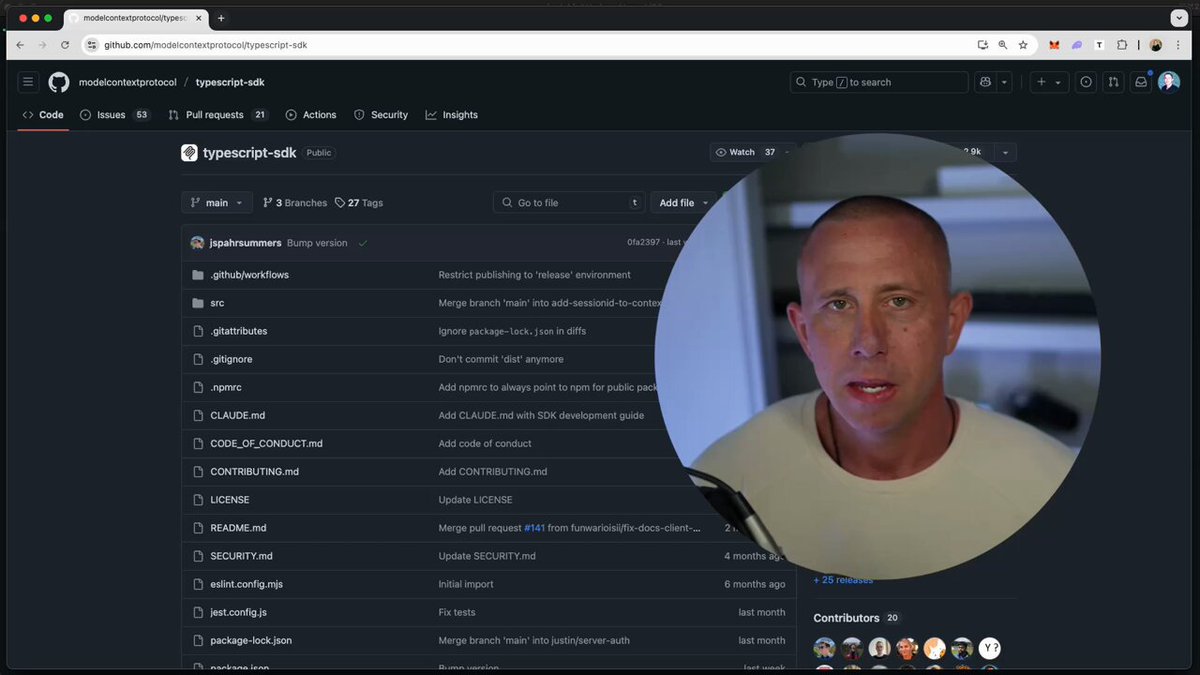
Verifiable LLM Output API: EigenAI offers an API for verifiable large language model (LLM) outputs, compatible with popular models like OpenAI, ensuring that prompts, models, and responses remain untampered.
-
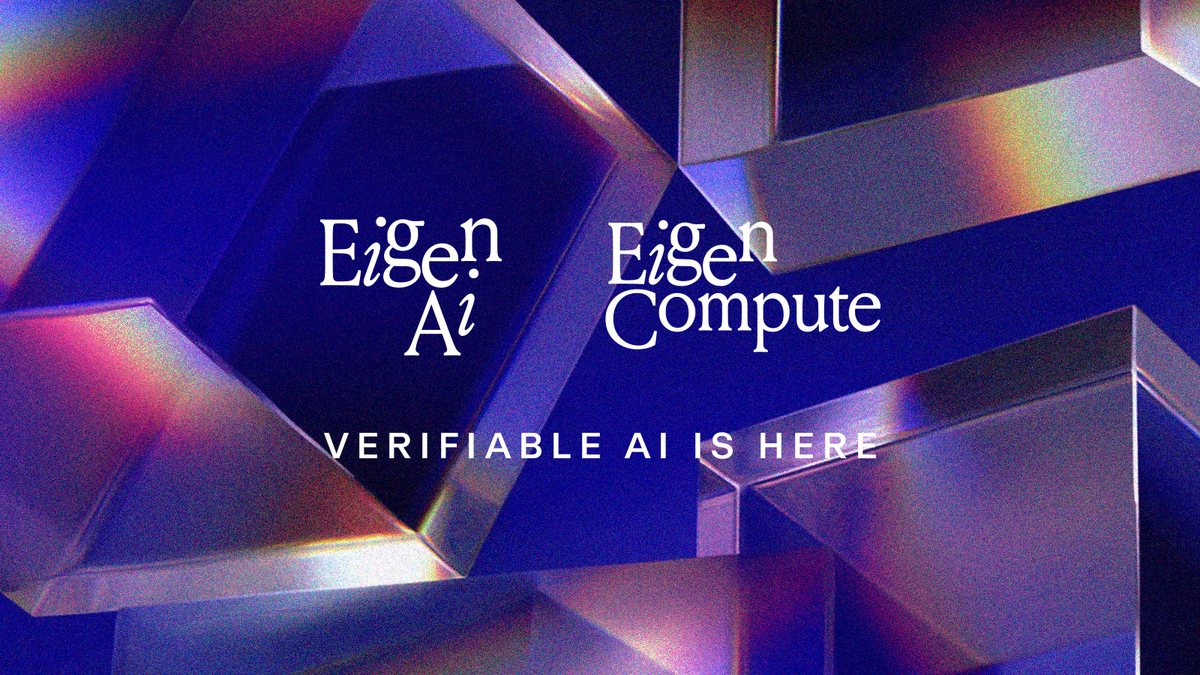
Autonomous and Transparent Agent Operations: Developers can build autonomous agents whose inferences and executions are provable, eliminating black-box operations and enabling user trust at scale.
Blockchain Integration: Transparency at Every Layer
The integration of blockchain technology is what transforms EigenAI from a theoretical framework into a practical solution for real-world use cases. By recording every agent action on an immutable ledger, blockchain ensures transparency, auditability, and regulatory compliance. Developers gain granular insights into decision paths, allowing them to identify points of failure or bias while providing regulators with tools for oversight (blockchain-council.org).
This architecture is especially impactful for decentralized finance (DeFi), autonomous trading bots, and fully on-chain AI agents like those being developed by Artela (artela.network). These projects aim to ensure that AI agents own and manage wallets independently within a decentralized ecosystem, keeping user data and assets secure from centralized control.
As the modular blockchain stack matures, verifiable AI agents are positioned to become foundational infrastructure for a new class of autonomous applications. The technical leap provided by EigenAI and EigenCompute is not just about increasing efficiency or throughput, but fundamentally about eliminating trust assumptions between users, developers, and the AI itself.
With every prompt, model call, and response cryptographically proven and recorded on-chain, the days of unverifiable outputs and “black box” AI are numbered. The crypto-economic incentives built into EigenLayer’s framework ensure that agents act honestly, with misbehavior resulting in automatic, protocol-enforced penalties. This not only deters malicious actors but also creates a robust feedback loop for continuous improvement and accountability.
Real-World Impact: Use Cases and Emerging Standards
Verifiable AI agents are already finding traction across multiple verticals:
Real-World Use Cases for Verifiable AI Agents in Crypto
-
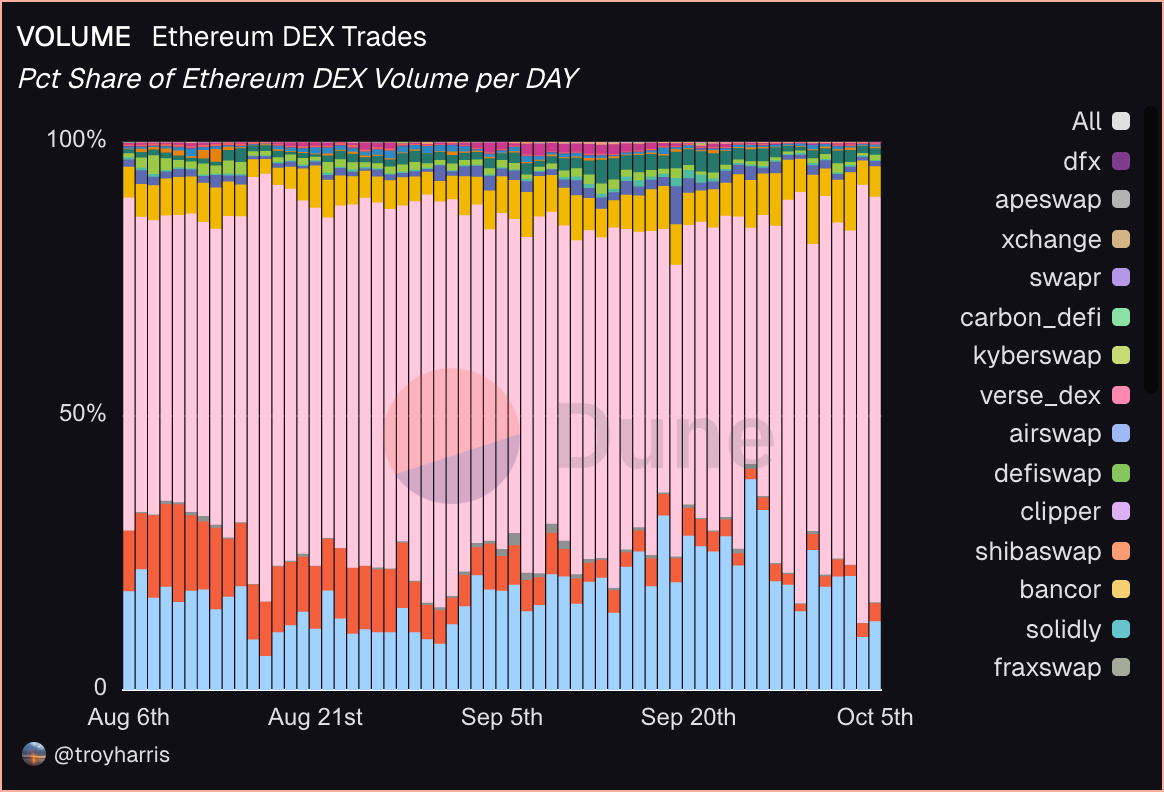
On-Chain Portfolio Management with EigenAI: Autonomous AI agents powered by EigenAI can manage DeFi portfolios, execute trades, and rebalance assets, with every action cryptographically proven and recorded on-chain for full transparency and auditability.
-
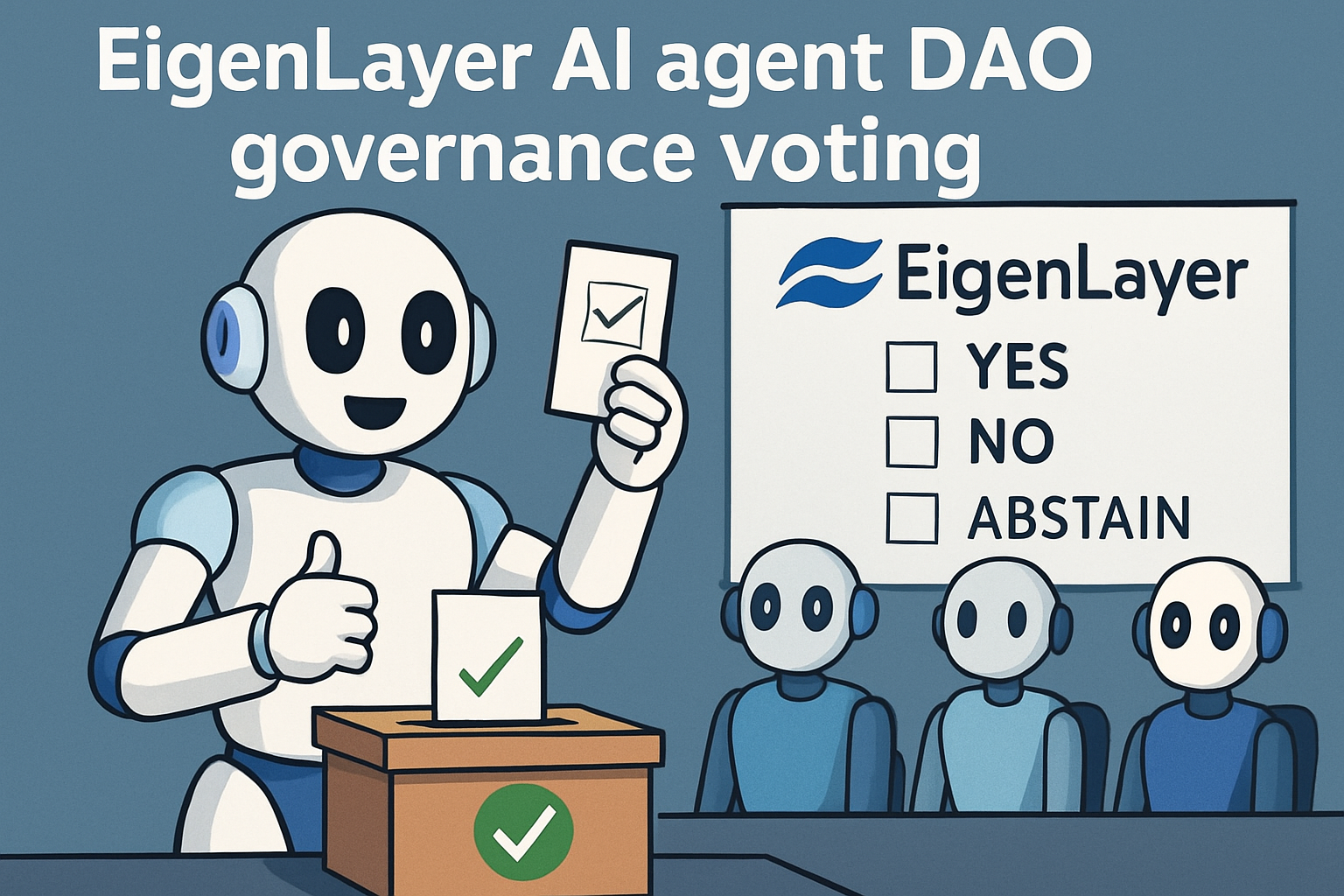
Decentralized Governance Automation: Platforms like EigenLayer enable verifiable AI agents to autonomously propose, vote, and execute governance actions in DAOs, ensuring every decision is backed by cryptographic proofs and visible on the blockchain.
-
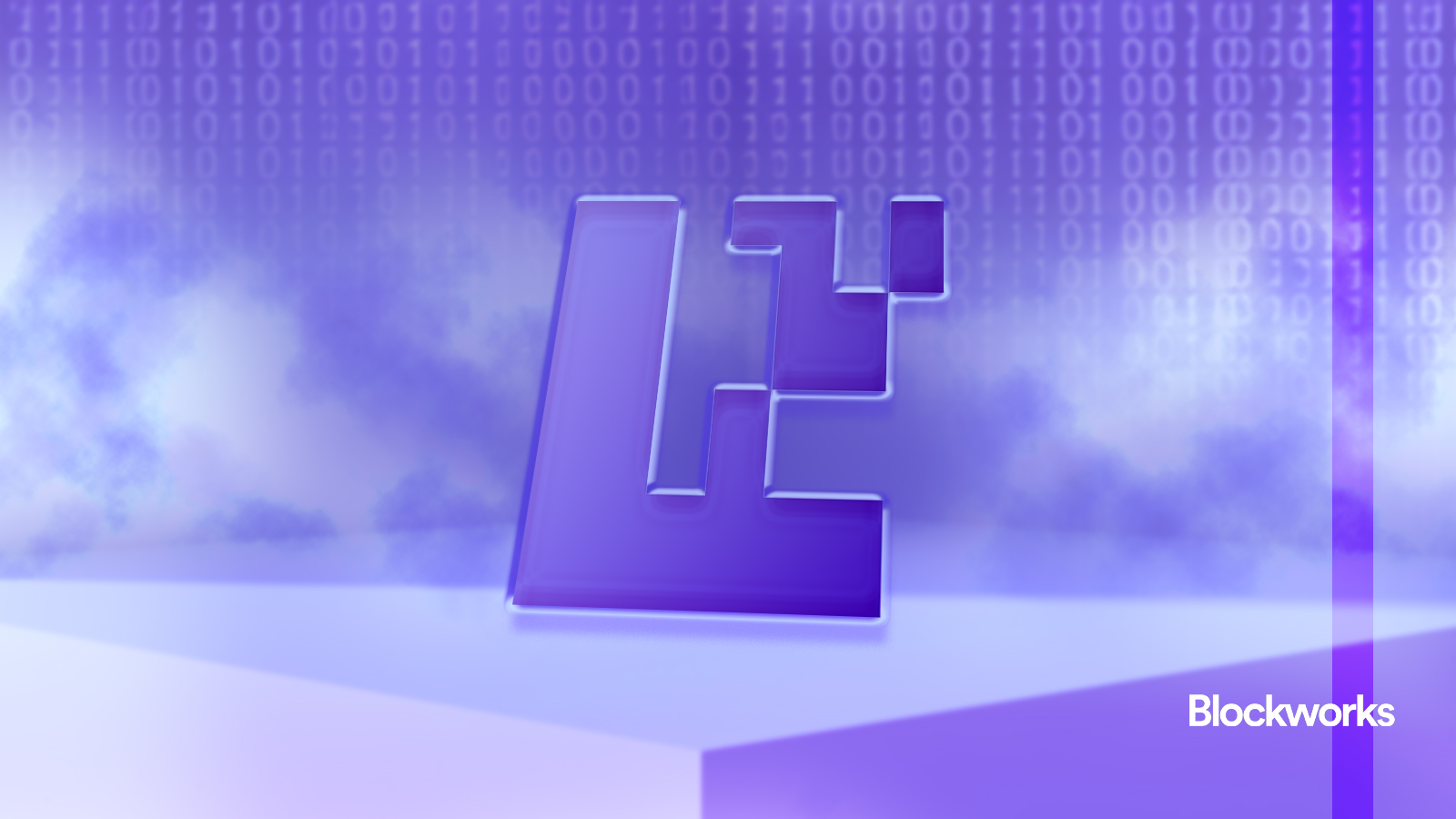
Trustless Airdrop Detection and Execution: Using EigenAI and EigenCompute, AI agents can autonomously detect eligible wallet addresses and execute airdrops, with all steps verifiable and subject to cryptoeconomic incentives and penalties.
-
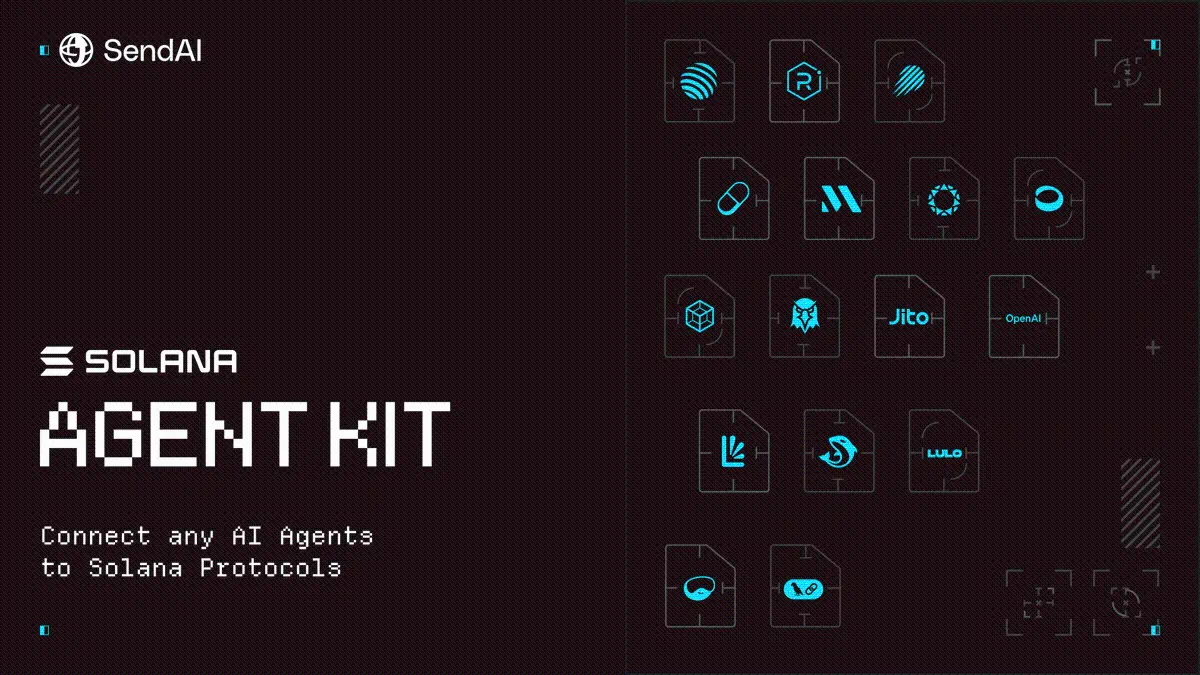
Fully On-Chain Autonomous Wallets: Platforms such as Artela are developing AI agents that independently own and manage wallets, enabling automated, verifiable transactions and asset management without centralized control.
-
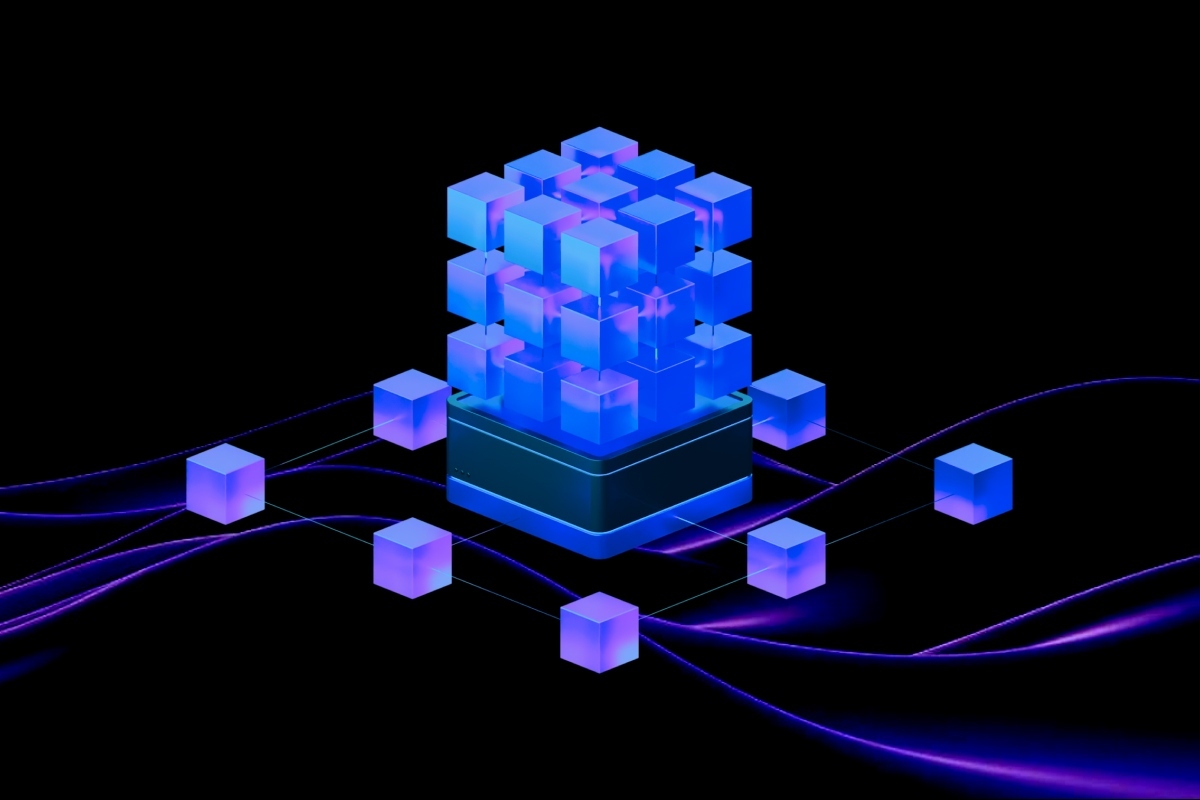
Auditable AI-Powered Oracles: Verifiable AI agents can serve as decentralized oracles for DeFi protocols, providing real-time data feeds with cryptographic proofs of data integrity, reducing risks of manipulation or tampering.
For example, in DeFi, asset management bots can execute trades with full audit trails, making it possible for investors to verify that strategies are executed as programmed. In on-chain governance, voting bots can interact with DAOs while providing cryptographic proofs of each vote cast, reducing the risk of manipulation or fraud. Autonomous infrastructure management is another frontier, with agents optimizing network resources or orchestrating cross-chain operations – all with deterministic, verifiable execution.
The modularity of EigenAI’s APIs (including OpenAI-compatible endpoints) means that developers can integrate verifiable agent logic into existing Web2 and Web3 stacks without reinventing the wheel. This interoperability accelerates adoption and helps establish standards for trustless, agentic computation.
Challenges Ahead and the Path Forward
Despite rapid progress, several challenges remain. The overhead of generating and verifying cryptographic proofs must be balanced against latency requirements, especially for real-time applications. Privacy is another concern – while transparency is crucial, sensitive data must be protected through selective disclosure or advanced zero-knowledge techniques.
Moreover, as autonomous apps trust becomes a competitive differentiator, the need for open standards and cross-chain compatibility grows. Projects like Artela and Ava Protocol are pushing boundaries by enabling fully on-chain agents that manage their own wallets and execute complex strategies without human intervention. The ecosystem is moving toward a future where deterministic execution and verifiable outcomes are the norm rather than the exception.
Key Takeaways
- EigenAI delivers cryptographically verifiable AI agents secured by crypto-economic guarantees.
- Blockchain integration ensures transparency, deterministic execution, and regulatory auditability.
- Real-world adoption is accelerating across DeFi, governance, and infrastructure verticals.
- Challenges remain around proof efficiency, privacy, and interoperability – but the trajectory is clear: trustless autonomous applications are here to stay.
The shift from black-box AI to proof-driven, economically-incentivized agents is set to redefine how we build and interact with decentralized systems. As EigenAI and its ecosystem evolve, expect to see a new standard emerge for transparency and trust in autonomous apps.






